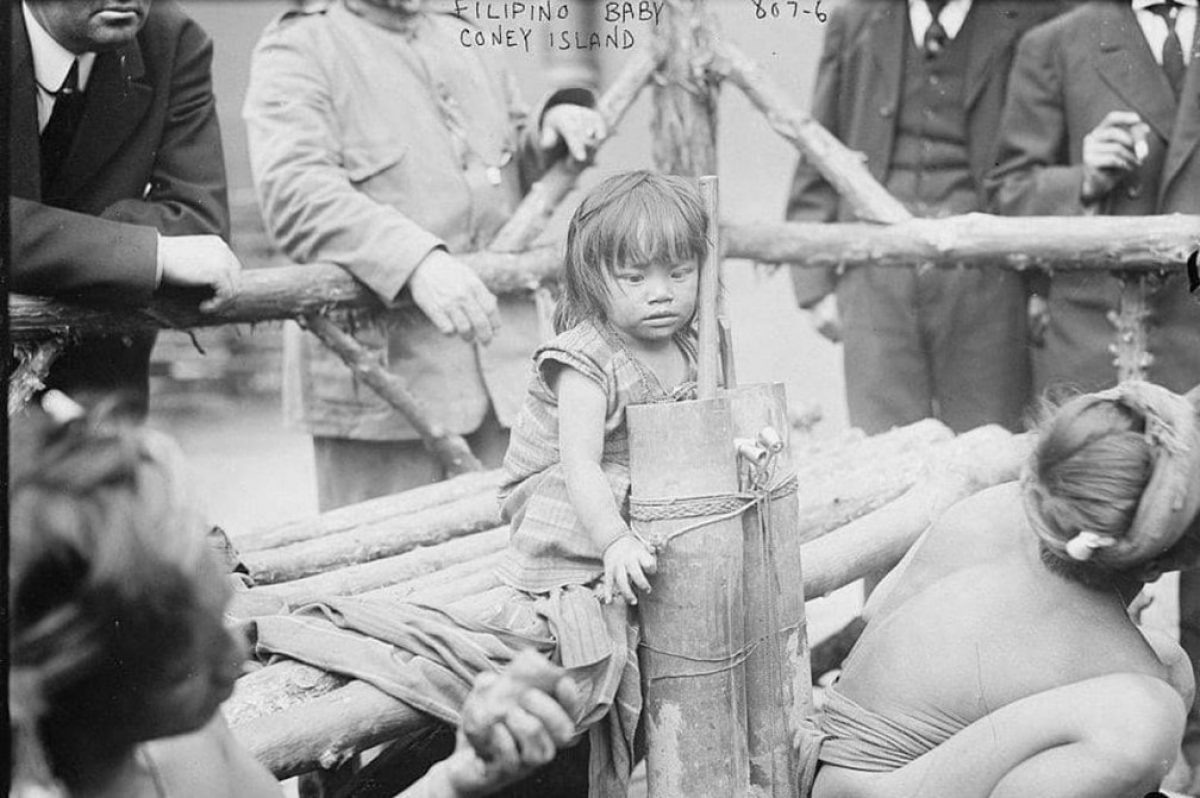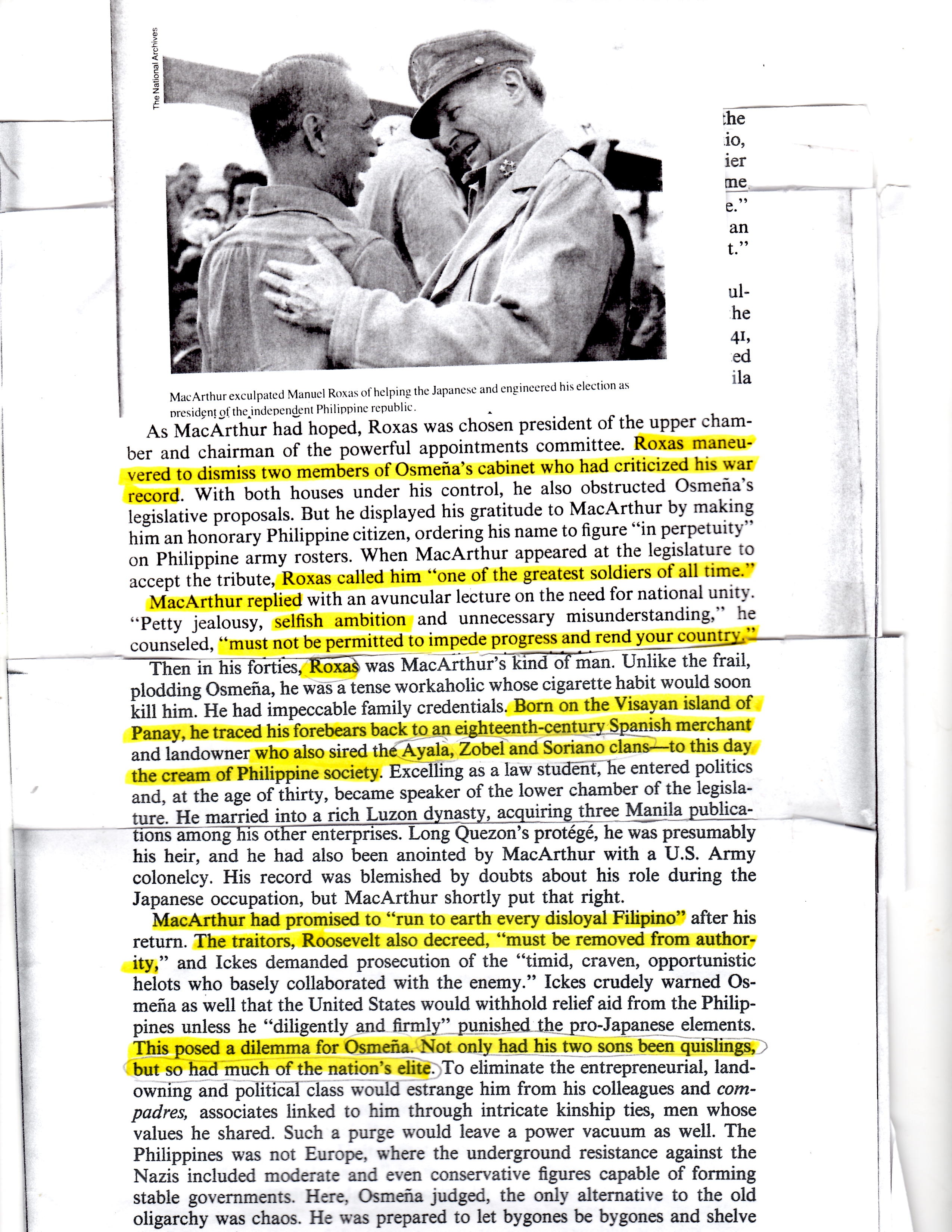“Roxas traced his forebear to the 18th Century Spanish merchant who sired the Ayala, Zobel and Soriano clans. ” p. 326
“Two of Sergio Osmeña’s sons were quislings like majority of the elite.” p.327
Source: “In Our Image: America’s Empire in the Philippines” by Stanley Karnow March 3, 1990 | ISBN-10: 0345328167 | ISBN-13: 978-0345328168 http://www.amazon.com/In-Our-Image-Americas-Philippines/dp/0345328167
“In Our Image: America’s Empire in the Philippines” by Stanley Karnow March 3, 1990 | ISBN-10: 0345328167 | ISBN-13: 978-0345328168 http://www.amazon.com/In-Our-Image-Americas-Philippines/dp/0345328167



